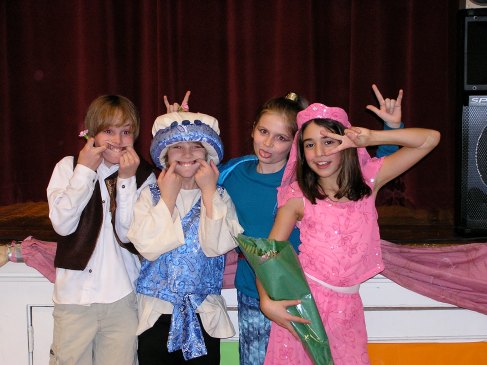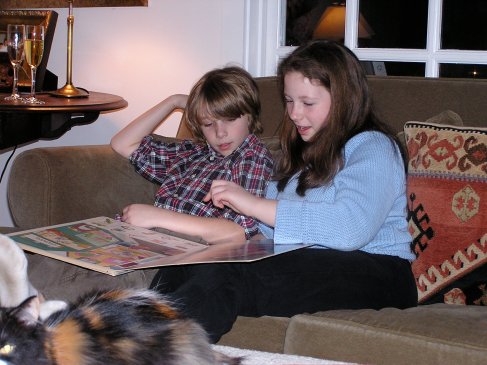I facilitated the most fascinating conversation in my Learning Through Teaching class last night. It is a UNH graduate course comprised of 11 of the most talented teachers I have ever known. This particular course is structured around a different text read each month. For this particular class we were discussing the book, Pathways to the Common Core by Calkins, Lehman and Ehrenworth. The Common Core standards are academic standards however much of the conversation leaned in the direction of all of the “other” things that have been pushed aside in the name of intellectual rigor.
One teacher, Laura talked about working with a group of 3rd graders who had no idea how to use scissors to cut a straight line, never mind around a circle. They held them clumsily and cut with great difficulty, one big chomp after another until she showed them you could use the innermost part of the scissors and cut in smaller increments. After she taught them how to cut it was time to paste, and again when she showed them to spread the glue with their fingers they were in awe. They had never seen anyone spread glue with their fingers before and then as Pam Murphy commented, and then peel it off your fingers later!
Fine motor skills used to be just as important on our whole child curriculum where kids had time to cut and paste and work on these skills. No more. Everyone chimed in about the days when you could actually take a chunk of time in the afternoon and allow kids time to create “stuff” with various and sunder art supplies, paper, some glue and scissors. We even wondered, are kids even doing these kinds of things at home anymore?
Many others spoke about how there is just no time in the day anymore to do what is right for their students. A 4th grade teacher, Darlene was almost in tears as she talked about her districts pacing guide that everyone had to follow and how it was so difficult for her to maintain this pace when she knew so many of her students were not ready to move on. She expressed this sentiment when the conversation centered on the idea that “knowledge is power”. “Sometimes all of the knowledge I have about teaching is completely frustrating because I know how much more I could be doing and am not able to.” Is there any other profession where the knowledge of “the” professional would be so undermined? Teachers are not even allowed to determine the pace at which their students move? What is next?
The conversation then went on to the explosion of ADD and ADHD in our schools and how movement is a very small part of any day. Could ADD possibly be a symptom of classrooms gone stagnant? Stagnant in the name of big programs, pacing guides, rigor and an overall push towards only one part of each child and that is the academic growth. Period. Never mind the social and emotional. The tasks at hand require students to sit in their seats and comply and complete the latest assignment and of course be tested on it tomorrow.
This then stemmed into the area of problem solving and how there are many behavior problems and so little time for kids to negotiate or learn to negotiate with their peers. Teachers used to have time to build learning communities, and problem -solve with their students about behaviors and create authentic learning cultures. Now most school years start off with academic testing, NECAPS and NWEA and benchmarks and of course whatever other data might be required by those who know nothing about being in the classroom. There is no time for this nonsense of building community and helping children to realize they are part of something larger than themselves. Testing isolates children unto themselves and after the testing is done there are lists and lists of more things to get “done”. It is all in the doing. Not about the thinking.
One teacher, Carol, wrote later that when she had fall conferences with her parents she realized how little she actually knew about her individual students because they had essentially been testing since they arrived at school. And it is mid-October.
These teachers expressed almost a sense of guilt about time lost to issues beyond the academic. In this limited academic culture we are ignoring so many critical parts of each and every child. When is enough, enough? To what end are we interested in only the intellectual, seeing students as potential numbers and completely raping our students of a well-rounded and complete social, emotional and academic experience in our schools? When do our kids begin to matter again?
David talked about the impact of smaller families and Karen agreed, talking about how there are no middle children anymore. And in the words of David to his intern when she asked about what it meant that there were no middle children in their class he replied, “Well it means 2 things. Number one, it means we have bosses and we have babies and number two, it means we are screwed.”
So who takes on the role of negotiator then if classes are more frequently made up of only children, eldest children or youngest children, all of who typically are used to getting what they want? Thus the need for time in the classroom to help our bosses and babies see the world beyond their own needs and desires. To learn how to duke it out with each other and figure out how things work in human interactions and those that don’t. Sorry, no time for that, there is another assessment due.
These are your child experts. These are the people in the trenches every day. Why are we not asking them to define what is best for children? Or at least just leaving them alone for a couple of hours to get to know their kids, to work with them individually. It makes NO sense that those in charge of mandates have never been in the classrooms. To what end are we ignoring our professionals? To what end are we spending trillions on the latest and greatest programs to be shelved in the next 3 – 5 years? When will it be time to say enough it enough?
I think it began slowly years ago… beginning when No Child Left Behind went into effect and consequentially left more children behind than ever. As Sue said, with each new initiative, a little piece of teacher autonomy was taken away increment by increment, all in an effort to do what is right. And our next round of compliance comes with The Common Core Standards…but like our conversation, there is so much more to being “College and Career” ready in terms of the social and emotional alongside the academic; the consideration of the whole child. There is so much more to teaching than a trajectory of skills and strategies. There are little faces peering up from behind desks, wanting to learn, waiting to be inspired, and wanting to be a part of something bigger than them and so many teachers who are dying to respond to them, some who still have the freedom to do so and others who have less and less each day.
So this leads me into talking with kids, old and young, about the last time they remember when they felt like what they had to do or say mattered in school. These are the stories I am collecting now because they give me hope. I would love to know your stories if you want to send them along as well.



Thank you for making me feel that all my concerns aren’t unfounded. I am not alone and in fact this community of teachers needs to be heard and spread even if “they” don’t want to listen.
And I have yet to write about our group yet!! My hope is to get as many readers as I can…including the “theys” of the world!! You are so not alone my friend!!
It is such a difficult time in Education. Many people who are not in the education field are the ones making the decisions. Our days are too fast paced…we need to slow down our classrooms as well as slow down the world. Do police depts have ordinary people telling them how to catch bad guys? When was the last time you felt compelled to tell a firefighter how to attack a fire?
SO true Pam. Can’t even imagine that or how the firefighter or the police department would respond.
We will make it through this together!!
Need to shake my vanilla!
Have a good night and thanks for heading back into the trenches tomorrow!
Tomasen
Thanks for the conversation, everyone…Got me thinking about professionalism…
Right now on my team of five teachers, we have four masters degrees (plus constant ongoing education ), with one of our team currently enrolled in a masters program. We all read, research, think, and plan continually on how to best meet our students needs. We meet twice weekly to coordinate our curriculum and to discuss how to best help individual students on our team of 85. We meet with our assistant principal and guidance counselor weekly. We meet five times a month with colleagues in our core subject area and collaborate informally all the time.
We know what we are doing! We are top notch!
Love the power and strength of your convictions here Pat! Yes you do!! Keep it up!
Hey Tomasen. Great thoughts. I was an educator in PA for 15 years. The challenges are always present. I kept thinking if administration, school boards, and gov’t would just let me teach, let me DO what I know how to do, that it would be so much easier.
Enjoyed the read very much.
Susan,
Thanks. I appreciate your reading!! If you felt that way then, well, what is happening in many schools right now is astonishing. The strangest part is that we pay teachers, but then don’t expect them to know what to do and spend more money on massive programs. It is a crazy world out there right now!!
Tomasen
Testing one two three…just seeing if this is working. Am I replying to Tomasen here or one of the folks who responded to Tomasen here? I am working on an analogy for what it feels like to be a teacher for me right now. The DSM V seems like a good place to start…not sure which of the icons below I should press… Well, here goes, see you on the other side.
Mark,
Can’t wait to hear about that analogy!! I am seeing you here on the other side and the view is still the same!! Over and out.
Tomasen
I think the feeling that teachers are not “true” professionals is so ingrained that, even in schools where there AREN’T pacing guides and administrators looking over teachers’ shoulders, those (mostly veteran and incredibly wonderful) teachers STILL feel like they “have to.” When I ask why, or who tells them that they “have to,” I never get a satisfactory response. I partially see my current role as a literacy consultant as building up the confidence and sense of questioning–e.g., Just who is telling us to do this or that? And are they even qualified to do so?– that many of these teachers lack because of the current culture in which we live and teach.
Shawna,
You make such a good point here. The question then becomes…where does this begin or how does this happen? Building confidence is absolutely a large part of my job these days as well. That and helping them to rediscover their voices. I wonder what will need to happen in order for this culture to change.
Thanks for your response!! This one has me thinking, yet again!
Tomasen
Thank you, Tomasen for being our voice!
No, thank YOU!!